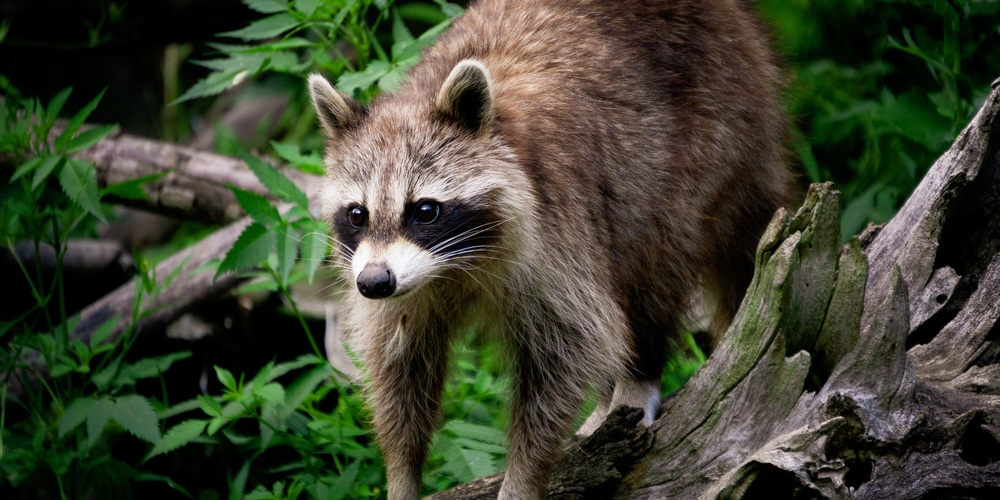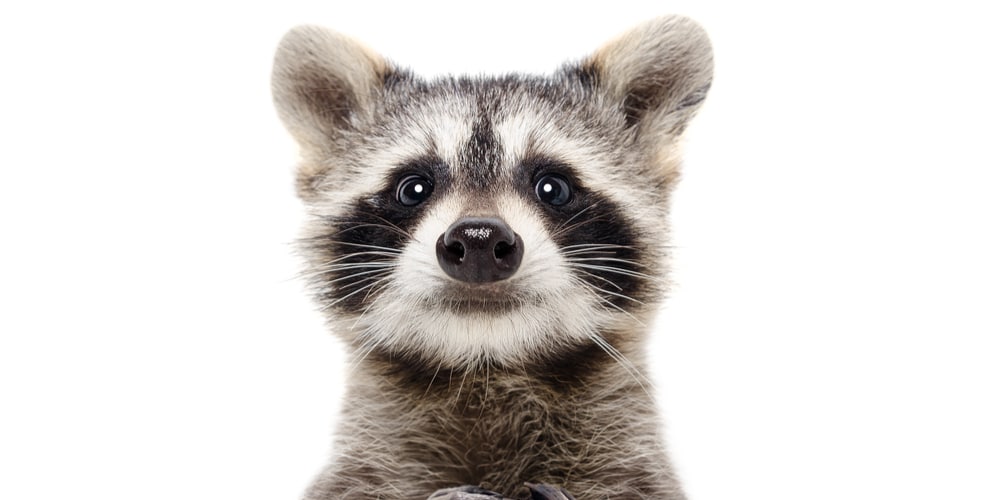Raccoons are uncommon creatures and can be seen in both rural and urban landscapes in the US. Although they’re more active at night, it’s not unusual to see them hanging around in your tree or garden. Can raccoons climb trees?
The answer is yes. In fact, they usually climb trees to get a vantage point and for safety purposes when they need to rest. Sometimes raccoons live in them if the tree is hollowed out and there’s a den inside.
Why Do Raccoons Climb Trees?

Raccoons have a remarkable ability to climb any tree with ease. Chances are that you’ll spot them in your property up above a branch and surveying the ground below.
Raccoons use trees for a number of things, including foraging for food, getting away from predators and using it as a springboard to another area, such as a roof, garbage bins and where there’s prey.
These mammals are not able to jump as well as their other brethren, but they’re smart and have sharp claws. Furthermore, they can drop to the ground relatively unharmed thanks to their remarkable dexterity.
Trees serve as a favorite hangout spot for raccoons because it serves them well throughout the day. Raccoons don’t have a preference when it comes to trees, although they will usually look for food on trees they climb.
These animals use their feet and claws to grab the tree’s surface and catch a grip on the bark in alternating fashion to get up or around.
Raccoons and Their Habitats
Raccoons have a predictable way of choosing their habitats. Over the years they’ve grown accustomed to urban areas and people, which in a way serves as a convenient spot for foraging and establishing their dens.
A raccoon will stay in a location that’s close to a water source, such as a lake, stream or river. They can live in dense brush and forested areas out in the wild.
However, these mammals will encroach on a property or house as long as it’s suitable for them. If there’s a nearby food source, such as a garbage bin or dumpster then chances are that you’ll see a raccoon.
Parks and picnic spots are also favorite places where a raccoon will look for food.
Raccoons have a curious habit of having a ‘home range’. It’s basically a location where they choose to stay, with urban raccoons having a smaller range compared to rural and suburban types.
Once they’ve established a home range then it might be difficult to get them out of your yard or outdoor space.
These mammals can live in trees that are hollowed out. The den is where they live and sleep during the daytime. You may occasionally see a raccoon going up and down a tree with no problem, and if they seem to be having a difficulty you shouldn’t intervene as it’s really unnecessary.
Raccoons usually make their home in trees or enclosed spaces and dense foliage to protect themselves from predators. That tree could be one in your yard or garden.
Raccoon Prevention Tips
Raccoons can become pesky visitors if they decide to stay in your yard. These mammals love eating sweet fruit in particular, and if you have a tree that fits the bill then you could be faced with a raccoon problem in the future.
To discourage raccoons from staying in your yard for too long, it’s best to remove the resources they’re looking for. Particularly food and water. Cover your garbage bins and clean up fallen seeds and fruits from your plants, shrubs and trees often.
These creatures may be also attracted to pet food- if this is the case then it’s recommended that you move them indoors.
You can prevent them from climbing up a tree by wrapping the trunk with a conical tree guard or sheet metal. Predator urine or homemade pepper spray can also serve as a deterrent for them, but this will require regular application.
To keep raccoons away from your property, you can install motion-activated alarms or call pest control to have a professional take them away. If you have children you’ll have to tell them not to give it food or approach them even when they seem cute and nice.
Related Article: Do Deer Like Lobelia Plants?
